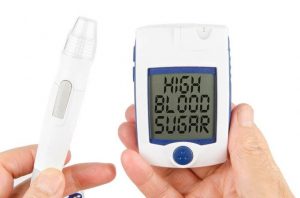
Blood sugar readings can be fickle; and this is regardless of whether you were just diagnosed recently, or you’ve been diagnosed over a long period of time.
Apart from the fact of its fickleness, it is also very important that it is always in check and managed well
Proper blood glucose management can help to prevent you from potential diabetes complications like nerve damage, kidney disease, vision problems, heart diseases and stroke
Learning how different habits and factors can cause blood sugar to fluctuate can help you prepare for, and predict fluctuations
It is important to note that some of these factors are out of control; even though you stick to your medications and diet, your blood sugar will still tend to fluctuate.
But that doesn’t mean it cant be prepared to defend against those fluctuations. Keep reading to see factors that could affect blood sugar and what to do about them.
1. DEHYDRATION: sounds awkward right? Well, being dehydrated and having diabetes are co-related. When your body is short of enough fluid supply, the sugar in the cells tends to be high concentrated and this leads to hyperglycaemia.
To make things worse, high blood glucose leads to excessive urination, which can in turn increase dehydration.
So, if you have been diagnosed with diabetes, it is in your interest to stay hydrated always, especially with water.
- 2. SOME MEDICATIONS AFFECTS BLOOD SUGAR: apart from your oral drugs to help manage diabetes, some other over-the-counter drugs you’re on can alter glucose readings.
Drugs used to treat inflammatory conditions, autoimmune disorders, and asthma can cause a spike in blood glucose.
3. DAWN PHENOMENON: you might have experienced this one time or the other when your blood sugar levels spike at early mornings even if you did so well with your drugs and diet the previous night.
It might just be dawns phenomenon: your body releases cortisol during 2am-8am, and this hormone has a way of making your body less sensitive to insulin.
You should check with your doctor if this continues regularly.
Apart to inadequate management and abuse of oral glycaemic drugs, some other factors might be influencing your blood sugar readings
You have noticed that your crossed all your T’s and dotted all your I’s and still? Just maybe, these factors are involved.
SOURCES:
– https://www.everydayhealth.com/type-2-diabetes/symptoms/surprising-causes-of-blood-sugar-swings/
– https://www.cdc.gov/diabetes/library/spotlights/blood-sugar.html
– https://www.mayoclinic.org/diseases-conditions/diabetes/expert-answers/dawn-effect/faq-20057937#:~:text=The%20dawn%20phenomenon%2C%20also%20called,a.m.%20%E2%80%94%20in%20people%20with%20diabetes.
– https://www.ncbi.nlm.nih.gov/books/NBK430893/

